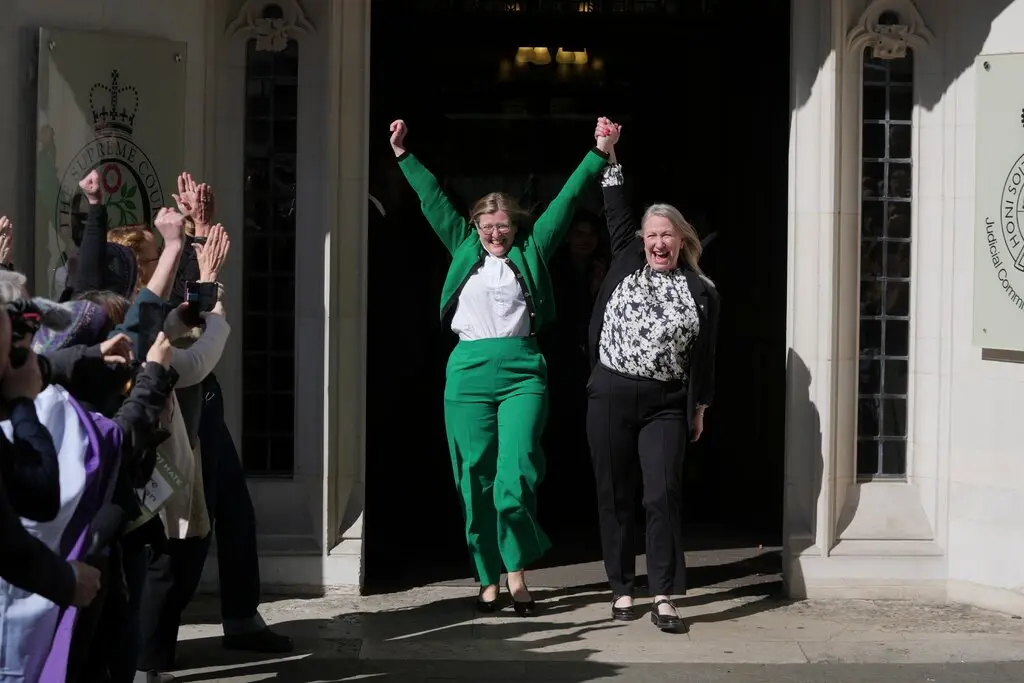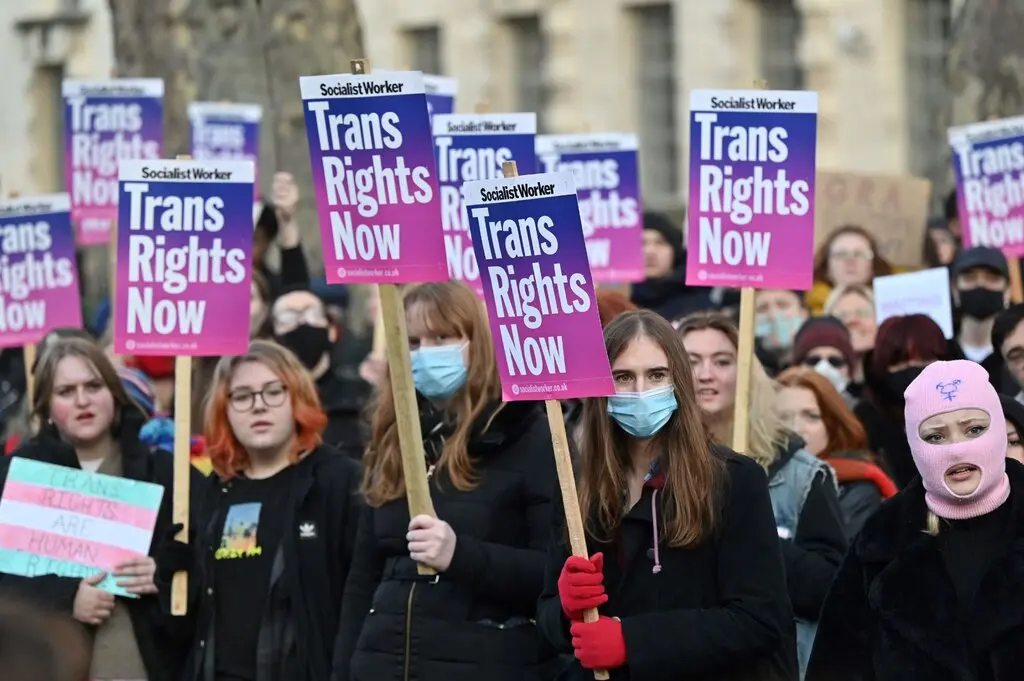Britain’s Supreme Court ruled that the word “woman” refers to biological sex under the country’s anti-discrimination law, in a blow to trans rights activists.
The Supreme Court in Britain ruled on Wednesday that trans women do not fall within the legal definition of women under the country’s equality legislation.
The landmark judgment, which said that the legal definition of a woman is based on biological sex, is a blow to campaigners for transgender rights. It could have far-reaching consequences for the operation of single-sex services like domestic violence shelters, as well as to equal pay claims and maternity policies. And it comes amid intense public debate over the intersection of transgender rights and women’s rights.
However, the five judges involved in the ruling emphasized that they were not commenting more broadly on whether trans women are women, saying it was not the role of the court to adjudicate on the meaning of gender or sex. Instead, the judgment is limited to the precise meaning of language in the 2010 Equality Act, which aims to prevent discrimination.
The decision will likely be welcome news for Prime Minister Keir Starmer of Britain. Some legal scholars had theorized that the court might refuse to rule and instead force his government to weigh in on a thorny and divisive issue. The government said in a statement Wednesday that it had always supported the protection of “single-sex spaces based on biological sex” and that the ruling brought “clarity and confidence” around the provision of services in hospitals, domestic violence shelters and sports clubs.
What did the court say?
Announcing the decision on Wednesday, the deputy president of the court, Lord Hodge, said: “The unanimous decision of this court is that the terms ‘woman’ and ‘sex’ in the Equality Act 2010 refer to biological women and biological sex.”
He added: “We counsel against reading this judgment as a triumph of one or more groups in our society at the expense of another, it is not.” He said the ruling “does not cause disadvantage to trans people” because they continue to have protections against discrimination under another part of the Equality Act.
The act includes a range of “protected characteristics,” which include race, religion and disability. The Supreme Court said its ruling meant that trans women would receive the law’s protections under the category of “gender reassignment” rather than sex.
Lord Hodge acknowledged the fraught national conversation about transgender rights, and described trans people as a “vulnerable and often harassed minority,” while noting that women had long fought for equal rights with men.
“It is not the task of this court to make policy on how the interests of these groups should be protected,” he added, but “to ascertain the meaning of the legislation which Parliament has enacted.”
Although the case was focused on the legal definition of women, it also applies to trans men because the Supreme Court ruled on the broader meaning of “sex” as being “biological sex” under the Equality Act 2010.
How is the court’s decision being received?
Speaking outside the court afterward, Susan Smith, the co-director of For Women Scotland, the activist group that had brought the legal challenge, said the judgment would ensure that “services and spaces designated for women are for women.”
She added: “Everybody should be protected by the Equality Act. This is not about prejudice or bigotry, as some people would say, it’s not about hatred for another community. It’s just about saying that there are differences, and biology is one of those differences, and we just need protections based on that.”

J.K. Rowling, the creator of the Harry Potter series, supported For Women Scotland in their legal campaign. She said she was “proud” of the group in a post on X, and claimed the case had “protected the rights of women and girls across the U.K.”
Groups that campaign for trans rights expressed concern but also appealed for a calm and careful assessment of what the court’s ruling did and did not change.
Scottish Trans, which campaigns for gender-identity rights, cautioned against misinterpreting the decision. “We’d urge people not to panic,” it said in a post on social media. “There will be lots of commentary coming out quickly that is likely to deliberately overstate the impact that this decision is going to have on all trans people’s lives.”
And Sacha Deshmukh, the chief executive of Amnesty International UK, said it would take time to analyze the full implications. “There are potentially concerning consequences for trans people, but it is important to stress that the court has been clear that trans people are protected under the Equality Act against discrimination and harassment,” he said in a statement.
However Simon Blake, the CEO of Stonewall UK, an LGBTQ+ charity, said that although the Supreme Court had confirmed that trans people were legally protected against discrimination, “it will be incredibly worrying for the trans community and all of us who support them.”
Why did the Supreme Court weigh in?
The origins lie in a law that the Scottish Parliament passed in 2018, aiming to increase the proportion of women on government agency boards to 50 percent. As part of that legislation, the government said that trans women could count toward the target.
For Women Scotland took the Scottish government to court, arguing that trans women should not be included in the quotas. The government amended its guidance to say that only trans women with a so-called gender recognition certificate met the definition of a woman under the Equality Act of 2010, and could therefore be included in the quotas.

Gender recognition certificates are legal documents that can be granted by the British government to people who have lived in their acquired gender for two years and intend to do so for the rest of their life, and who have been diagnosed with gender dysphoria. The process, which has not been changed by Wednesday’s ruling, grants successful applicants the right to update their sex on official documents such as birth certificates, and to marry in their affirmed gender.
The For Women Scotland group continued to challenge the Scottish government in a series of court cases. In December 2022, a judge in Scotland’s highest court, Lady Haldane, rejected the group’s arguments, saying that the definition of sex was “not limited to biological or birth sex” for the purposes of the act.
For Women Scotland appealed to the Supreme Court, which is Britain’s highest court, and the court ruled in its favor on Wednesday.
Source: The New York Times
https://www.nytimes.com/2025/04/16/world/europe/uk-supreme-court-woman-definition-trans.html
